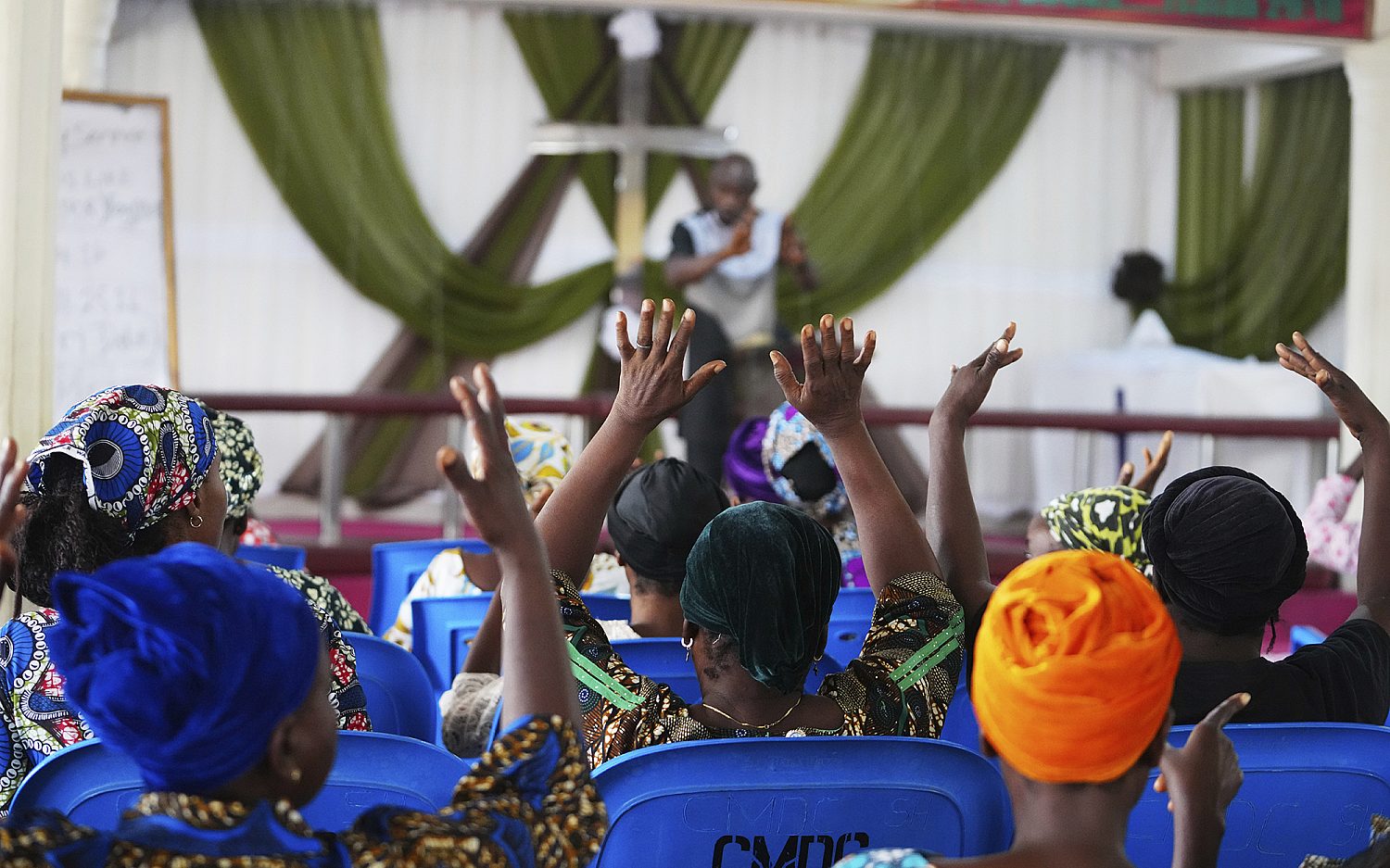Kyrgyzstan's chaos
Eyewitnesses attest to revolution underway for key U.S.
Ruby Johnston sensed that things were going from bad to worse in Kyrgyzstan earlier this week, when she and a team of caregivers from Canada visited a hospital in Tokmok, a town of about 60,000 east of the capital, Bishkek.
"There was a little baby lying in a bed, awake and obviously very sick, with an IV but absolutely no one on the ward caring for him. No one."
Johnston, who with her husband Lynn runs a small humanitarian aid ministry to orphans, needy families, and the elderly in Kyrgyzstan called Lamb International, said that over the years she has been working in the former Soviet republic the group has become accustomed to harsh conditions: At the hospital in Tokmok, for instance, most patients have to bring their own mattresses. But as Kyrgyz residents have slid further into economic and political crisis in recent days, she said she had not realized that what have long been "devastating conditions" could in one day turn the country upside down.
That day was today-as thousands of protesters on Wednesday seized government buildings and torched state-linked businesses after a day of street protests called by the opposition turned into a full-fledged coup. By midnight, when the government had called a curfew and ordered streets closed in Bishkek, instead "hundreds of men," according to Johnston, seemed to be roaming the streets and chaos still reigned.
Protesters seized a state TV channel and broke through barriers into a government complex known as the "White House," where the country's president, Kurmanbek Bakiyev, had his office. Around midnight local time state media reported that Bakiyev has fled the country and opposition groups-led by Social Democrats Irina Karamushkina and Keneshbek Duishebayev-appear to have overthrown the government. Officials now estimate that about 100 people have been killed in the day's violence and hundreds more wounded.
Kyrgyzstan is one of the poorest countries of the former Soviet republics. With five million people in the mountains of Central Asia, it long has been torn by political conflict and corruption. It is one of the closest U.S. allies in the region, and the United States operates a strategic air base near Bishkek, the Manas Transit Center, which provides a supply link to U.S. forces in Afghanistan.
Since coming to power in 2005 in one of the "color revolutions" that swept former Soviet states, Bakiyev was widely seen as bringing democracy to the nation and a measure of stability. But many observers say he has done so at the expense of freedom, while enriching himself and his family. He gave his relatives, including his son, top government and economic posts and faced the same accusations of corruption and cronyism that led to the ouster of his predecessor. Over the past two years, Kyrgyz authorities have clamped down on free media, and opposition activists say they have routinely been subjected to physical intimidation and targeted by politically motivated criminal investigations.
Johnston told me that utility bills have skyrocketed in recent months, and the most recent increase caused some electric bills to double and triple-leading to many shortages and widespread hardship. "I have retired neighbors who live on the equivalent of $27 a month pension. They have only rice, bread or an occasional bag of noodles to eat."
I spoke to Johnston at the airport outside Bishkek, where she had been waiting with a team of aid workers for 10 hours starting late in the day Wednesday. For the last two weeks Lamb had hosted the visiting team of five in Tokmok and surrounding areas. As tensions mounted the group decided it was important to get the team to the airport for a scheduled April 8 departure for Toronto. The one-and-a-half hour journey to the airport, Johnston said, was "quite frightening." Hundreds of men lined the roads, in some places pulling drivers from large passenger taxi-vans called "mashukas" and beating them. When her group passed a well-known restaurant called Hawaii-a "large, very nice complex" Johnston described as associated by many residents with the wealth of Bakiyev's cronies-it was completely in flames. Johnston said she learned from locals that the husband and wife who owned the restaurant had been killed.
"It felt as if our van was invisible, and we praise God we got through," she said.
Johnston and her husband Lynn, along with partners David and Jayne Schooler, do not plan to leave Kyrgyzstan despite the chaos and uncertainty. "We will stay on. We have a love for this country and we need to be here more than ever." What about those they work with, already vulnerable parts of Kyrgyz society? "I don't believe they are in danger. Survival for them already has been so difficult."
An actual newsletter worth subscribing to instead of just a collection of links. —Adam
Sign up to receive The Sift email newsletter each weekday morning for the latest headlines from WORLD’s breaking news team.





Please wait while we load the latest comments...
Comments
Please register, subscribe, or log in to comment on this article.